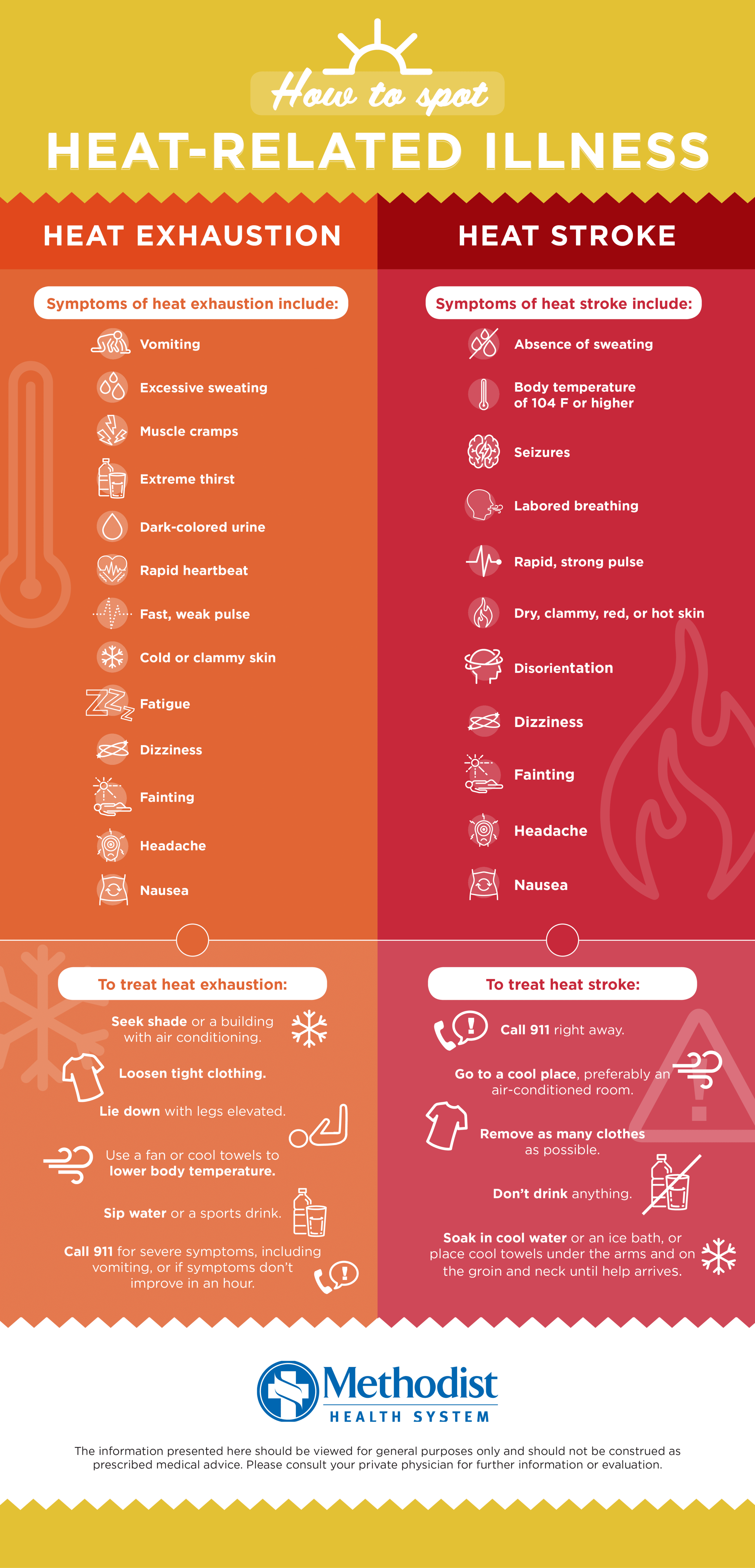Here in Texas, fun in the sun is the norm at least six months of the year. You might be boating on Lake Lewisville, floating the Brazos, cheering on the Rangers, throwing a Frisbee® on the beach, hiking Big Bend, or walking the golf course.
Wherever you are and whatever you’re doing, too much heat and too much sun can put you in danger of life-threatening illnesses.
Heat exhaustion vs. heat stroke
Ketan Trivedi, MD, FACEP, emergency medicine physician on the medical staff at Methodist Mansfield Medical Center, sees cases of heat exhaustion and heat stroke all summer long. He says missing the signs of heat exhaustion — muscle cramps, fatigue, profuse sweating, lightheadedness, and dizziness — can lead to heat stroke, which is a much more serious condition that requires immediate medical attention.
“Heat stroke is a true medical emergency, and the patient needs to be brought to the emergency department promptly,” Dr. Trivedi says.
“People often confuse heat exhaustion and heat stroke, but there’s a huge difference,” Dr. Trivedi adds. “Any neurological signs, such as altered mental status or seizures, along with an absence of sweating are the hallmark differences that accompany heat stroke. “The problem with heat stroke is that it can start affecting different organs in the body — liver, kidneys, and muscles — so people have to be evaluated appropriately.”
A quick comparison
Here’s an at-a-glance look at the symptoms of heat exhaustion vs. heat stroke and the actions to take.
Stop heat-related illnesses before they start
Dehydration is one key factor to heat exhaustion and heat stroke. Fueling up with water and sports drinks the day before outdoor activities will help ensure that your body has the fluids and electrolytes it needs to stay hydrated.
“You don’t want to wait until you have symptoms to start drinking fluids; you want to pretreat,” Dr. Trivedi says.
He offers these additional tips for lessening the likelihood of heat-related illnesses:
- Limit activity to shorter durations.
- Alternate activity with resting in the shade to give your body a chance to cool down.
- Drink more than the recommended eight to 10 glasses of water a day if you’re going to be exerting yourself outdoors.
- Alternate water with sports drinks or coconut water, which contain the necessary electrolytes, sodium, and potassium.
- Eat potassium-rich foods, such as melon, beans, and spinach.
- Avoid alcohol, soda, and caffeine, which can contribute to dehydration.
Some people have underlying factors that put them at a higher risk for heat-related illnesses than others. These factors include genetics, physical fitness, and underlying illnesses, like heart disease.
“These underlying risk factors don’t typically change, so if you were susceptible before, you’ll still be at risk,” Dr. Trivedi says. “If you’ve already had a heat-related illness once, you want to be more careful in the future.”
SYMPTOMS THAT WON’T GO AWAY
If your heat-related illness symptoms are serious or persist, Methodist Urgent Care centers are available after hours and on weekends.


